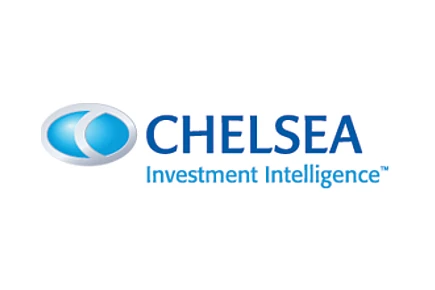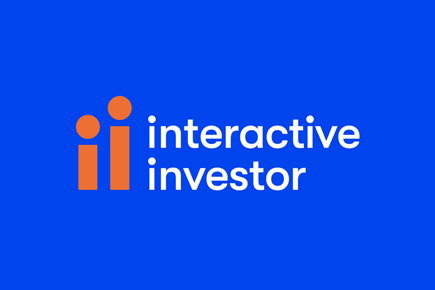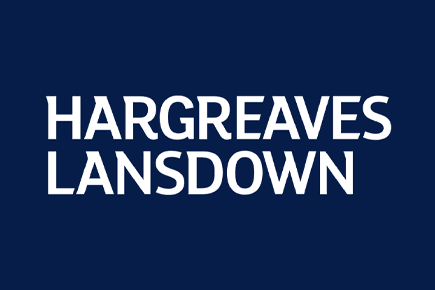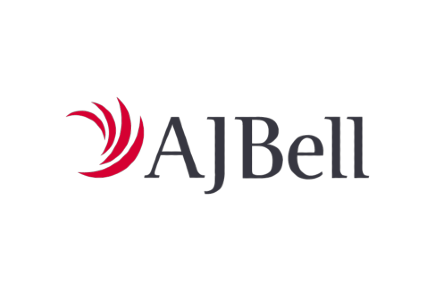UK equity income funds are one of the most popular types of investment fund for investors in the UK.
UK companies, especially those listed on indices such as the FTSE 100, the FTSE 250, or the FTSE All-Share, make for some of the most popular investment options, even for investors around the world.
That’s why one of the best ways to get involved with UK companies is to invest in a UK equity income fund, giving you access and exposure to stocks and shares in the UK market.
Find out everything you need to know in this useful and practical guide to equity income funds UK.
Investing platforms to consider
Interactive Investor
- Best for Investing in Funds
- Lowest cost per trade: £7.99
- Platform fee: £9.99 per month
Capital at risk.
Hargreaves Lansdown
- Lowest cost per trade: £5
- Platform fee: £0
Capital at risk.
What are equities?
In short, equities are the same thing as stocks and shares. The only difference is that a stock or share is the tradable version of the equity.
When you buy an equity, you’re essentially buying a small piece of that company, which is where the term “share” comes from.
The value of your equity will then fluctuate in the stock market based on elements such as company performance.
- Investing platforms to consider
- What are equities?
- What is a UK equity income fund?
- What sort of investments are contained in a UK equity income fund?
- How do I make money from equity funds?
- How do I invest in a UK equity income fund?
- Choosing funds to invest in
- Risk and equity income funds
- Taking financial advice
- Frequently asked questions
What is a UK equity income fund?
A UK equity income fund is a “package” of UK equity investments that you can invest in all at once. These investments will typically be across a range of sectors and industries.
When you invest in a fund, you pool your money alongside other investors. You purchase “units” in that fund, which is like buying a share of it, with the value often depending on how successful the fund is.
Funds are typically managed by an investment manager who buys and sells the holdings within them. You’ll typically pay a percentage-based fee for this service. As a result of this structure, funds are often considered good value for money.
The earnings you receive are then based on how the investments contained within the fund perform, and how many units of the fund that you own.
Income versus growth
The reason that some funds are labelled as “income” is because there’s a key distinction between income and growth.
Income funds aim to do what they say on the tin – provide an income on your invested money. To do this, the equities they choose may present more risk to your capital.
Meanwhile, growth funds are more focused on long-term growth. As a result, they tend to be associated with lower risk than income funds.
For example, growth funds might contain a greater proportion of larger companies. These funds tend to be lower-yielding, as you take on a lower level of risk with them.
Meanwhile, income funds might include smaller companies or medium-sized companies, some of which may even be unlisted or found on the Alternative Index Market (AIM).
In general, taking on more risk means the potential for higher income. However, you should make sure that any fund you choose has an appropriate level of risk for you and your financial situation.
UK equity income funds
A UK equity income fund is simply an equity fund that targets income by investing exclusively in UK companies.
Some UK investors find this preferable to investing in global or overseas funds, primarily because it means you’re more likely to have heard of the investments it contains. This can give you greater confidence to know exactly what it is that you’ve bought.
What sort of investments are contained in a UK equity income fund?
As the name suggests, UK equity funds are primarily made up of equities.
The Investment Association (IA), the trade body and industry voice for UK investment managers, produces criteria that those in the UK equity income sector must meet.
To be considered a qualifying IA UK equity income fund, a fund’s holdings must be invested in at least 80 per cent UK equities.
The fund must also “intend to achieve” a yield of:
- Distributable income in excess of 100 per cent of the yield of the FTSE All-Share after three years.
- Distributable income in excess of 90 per cent of the yield of the FTSE All-Share on an annual basis.
Visit the Investment Association website to find out more about the criteria that a UK equity income fund must meet.
Bonds, gilts, and more
The remaining 20 percent of the funds are typically invested in a range of assets, including corporate bonds, government bonds (also known as gilts), and potentially some cash holdings.
How do I make money from equity funds?
Generally speaking, there are two ways in which the investments in equity funds will produce a return: via capital growth, or from dividends.
1. Capital growth
Capital growth is the literal gains in value that you see on the investments contained within the funds.
For example, the fund manager may buy a specific stock or share for £1,000 and then sell when it reaches £1,100, returning a £100 gain.
When investors are targeting future returns, this will often be the first metric they will consider.
Of course, it’s important to bear in mind that past performance does not necessarily indicate future performance.
2. Dividends
The other way a fund may produce returns is by investing in companies that pay dividends.
Dividends are small payments that companies pay out to shareholders as a sort of reward to thank them for their investment. These payments are typically made quarterly, every six months, or annually.
Dividends are paid per share to investors. So, the more money you hold with a single company, the more you’ll receive in dividend income.
So, if a company contained within an equity fund pays dividends, this money will be included in the returns that investors see on their money.
Dividend income can be useful as, even if the share price of a company dips, you may still receive regular payments.
Some experts actually see capital growth as secondary to these payments, believing that the best way to produce profits is to deliver compound returns by targeting dividend income and then reinvesting this money.
However, not all companies pay dividends. And, just because a company paid a dividend historically doesn’t mean it will continue to do so in the future.
For example, dividend cuts were standard for many companies as a way to conserve money when the stock market dipped due to the initial spread of the coronavirus in March 2020.
Dividend payments have largely returned to normal now. However, that doesn’t mean they’ll continue indefinitely.
How do I invest in a UK equity income fund?
To invest in a UK equity income fund, your best option is to open an account with a stockbroker or investment platform that offers the funds you want to invest in.
Below are some of the most popular choices for starting an investment portfolio in the UK.
AJ Bell Youinvest
AJ Bell Youinvest has around 368,000 customers with £70.4 billion assets under management.
Their website allows you to buy a variety of funds, allowing you to filter for income, growth, or a combination of the two.
As well as offering their own inhouse funds, you can also buy funds from other providers using the platform, such as the Santander Enhanced Income Fund.
You can also view key metrics for the funds, including the asset allocation, past performance, fund holdings, and costs and charges.
Hargreaves Lansdown
Hargreaves Lansdown is one of the biggest fund shops in the UK, with a dedicated fund search option for quickly finding investments.
There are over 3,500 total funds to invest in. Of these funds, nearly 140 are in the UK equity income sector. This includes a range of Hargreaves Lansdown’s own funds, as well as those from other providers, such as the Jupiter Income fund.
Hargreaves Lansdown’s analysts also select some of the funds for their “Wealth Shortlist” based on their performance.
For example, in the UK equity income bracket as of September 2021, the platform selected the Threadneedle UK Equity Income fund and the Troy Trojan Income fund.
Please bear in mind that the “Wealth Shortlist” funds are not personal recommendations or impartial advice. Make sure you speak to an advisor before buying based on this, as these funds may not suit your personal tolerance for risk.
Interactive Investor
Interactive Investor has nearly £55 billion assets under management for more than 400,000 customers.
You can invest in various funds on the platform, and their search tool allows you to directly look up a specific UK equity income fund that you may want to invest in.
Interactive Investor uses a “flat fee” structure to invest, meaning you can potentially save money if you invest regularly.

Chelsea Financial Services
Chelsea Financial Services is one of the oldest names in investing, having provided investment services since 1983.
The firm has been run by managing director, Darius McDermott, since February 2000. With 25 years’ experience at Chelsea, McDermott leads the team of investors on the company’s managed funds.
You can buy funds from Chelsea Financial Services using the Chelsea Fundstore, a dedicated fund search tool powered by Aegon. This includes their Core Selection funds, picked for their levels of performance.
Remember that the Core Selection is not personalised advice, and may not necessarily be suitable
for you.
Choosing funds to invest in
There are a lot of options available when it comes to choosing the right funds for you to invest in. So, before you put your money in the market, it can be sensible to read up and do your research around the UK equity income sector first.
There are many resources available that you could use to do this, and one particularly popular one is the Sanlam UK Income Study. The study, run by financial planning firm Sanlam, looks at the best and worst performing UK equity income funds over a year.
Sanlam UK then separates these funds into three categories depending on their performance: the “White List”, the “Grey List”, and the “Black List”.
White List funds
White List funds are those that performed well in the past year. For example, in the February 2021 update, the Santander Enhanced Income Fund displaced the Liontrust Income Fund to come top of the White List.
The Liontrust Income Fund fell to second, while other notable funds on the White List in February included the Troy Trojan Income Fund and the Blackrock UK Equity Income fund.
Grey List funds
Grey List funds are either those that were previously on the White List and have fallen, or those that appear to be in decline and on their way to the Black List.
In February, Grey List funds that fell from the White List included the Fidelity Enhanced Income fund and the Man GLG UK Income fund.
At the bottom of the Grey List came the Chelverton UK Income Fund and the Unicorn UK Income Fund.
Black List funds
The Black List contains funds that have consistently underperformed to the stage where they may need intervention to get them back on track.
In February 2021, Black List funds included the Canlife UK Equity Income fund, the Slater Income Fund, the Schroder Income Fund, and the Liontrust Macro Equity Income Fund.
Past performance is not necessarily future performance
Bear in mind that, just because Sanlam or any firm has judged a fund to be one to keep an eye on, it doesn’t necessarily mean that these are guaranteed picks. This information is simply an investor guide that can help you to make informed decisions for your money.
Past performance does not necessarily indicate future performance, so never solely rely on one opinion. Read around and do your research first to make sure you’re confident in what you’re buying.
What will I have to pay to invest in UK equity income funds?
Generally, there are three ways that an investment platform will charge you to invest your funds. The costs and charges for each fund will depend on who you buy your funds with, and what sort of funds they are.
1. Platform fees
You may have to pay a fee to use your chosen platform and open an account. For example, Interactive Investor has a flat fee of £9.99 a month.
2. Trading commission
As well as a fee to use the platform, you may have to pay commission each time you make an investment.
3. Ongoing management charges
To invest in funds, you will typically have to pay an ongoing fee for the continued management of your money. This is usually a percentage of what you have invested.
The fee will vary depending on which fund you invest in, and whether it is actively or passively managed.
Risk and equity income funds
As with any investment choice, there are downsides to investing in a UK equity income fund. The primary disadvantage you may face is increased risk.
To generate income rather than long-term growth from equities, the underlying investments will typically be in potentially riskier investments.
While these investments provide the opportunity for greater returns, that also means they present a bigger chance of a loss.
As a result, you need to be sure that the fund you invest in is suitable for your personal risk tolerance.
The Woodford Equity Income Fund
In 2019, a particularly notable UK equity income fund run by Woodford Investment Management became the subject of a scandal when it was suddenly unable to pay out cash to its investors.
The Woodford Equity Income Fund, owned by a former Invesco fund manager called Neil Woodford, had been struggling to provide a return for its investors in recent months. As a result, those investors began taking their money out rapidly, and the fund collapsed.
On reflection, it turned out that Woodford had been taking on quite a lot of risk in his fund.
According to a report by the Telegraph, more than 50 per cent of the fund’s holdings were in FTSE 100 companies at its inception in 2014.
But, by 2019, the fund contained just 20 percent of these larger companies, with a further 20 percent invested in smaller companies listed on indices such as the Alternative Index Market (AIM).
Woodford’s strategy relied on using the volatility of the market to achieve income. For many of his investors, this meant taking on more risk than was suitable for their individual portfolios.
Even now, according to FTAdviser, there is still £124 million of investors’ money trapped in the fund as of September 2021.
The lesson to learn from the Woodford fund is simple: for those that are targeting long-term capital growth, the risk tolerance of such funds may make them unsuitable for you.
For income seekers willing to take on the risk, a UK equity income fund can be appropriate, provided that it’s included as part of a diversified, well-balanced portfolio.
Even so, there’s still no guarantee of returns, and you could end up losing out on your money.
Taking financial advice
If you’d like to start investing but you’re not sure of how to go about it, you could consider working with a professional financial advisor and taking financial advice.
An advisor can offer personal recommendations for investments and funds that are most suited to you and your goals.
They’ll also regularly review your progress to make sure that you’re on track to reach your investment targets.
Overwhelmed with how to invest?
Connect with a Financial Adviser near you for FREE.
Frequently asked questions
How do income funds pay out?
Income funds pay out depending on what you buy and which broker you buy it with.
For example, some funds will pay out monthly, with the amounts depending on how well the fund has performed. Meanwhile, others may directly reinvest your earnings into the fund, meaning you have to sell your units to take your profits.
What are the best investment funds for income?
The best investment funds for income will depend on how much you have to invest, how much risk you’re willing to take on, and your personal investment needs.
Many stockbrokers and investment platforms publish lists of the best investment funds for income, such as the Sanlam UK Income Study, to help you find funds that are right for you.
Please note:
The value of your investments (and any income from them) can go down as well as up and you may not get back the full amount you invested. Past performance is not a reliable indicator of future performance. Investments should be considered over the longer term and should fit in with your overall attitude to risk and financial circumstances. This article is for informational purposes only and does not constitute financial advice.



